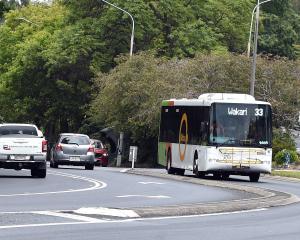Hate speech and terrorism, as well as moral leadership and the Christchurch Call, will be in the spotlight at a Dunedin conference about democracy and social media.

The conference is devoted to "New Ec(h)o Systems: Democracy in the Age of Social Media", and is organised by the University of Otago’s National Centre for Peace and Conflict Studies.
The gathering was timely, being held two years after the Christchurch mosque attacks and one year since New Zealand’s first Covid-19 lockdown, organisers said.
Conference lead organiser Sanjana Hattotuwa, of Dunedin, said the mainstream news media sometimes advanced a "false narrative", highlighting negative aspects and "detrimental effects" of social media, although he acknowledged worries that some internet sites could act as echo chambers, potentially magnifying extremist views.
However, social media also had a strong potential for good, and to advance democratic values, he emphasised.
"We’ve got to look at the evidence.
"It’s not all bad," he said.
Mr Hattotuwa, whose PhD research analyses social media content after the Christchurch mosque attacks in March 2019, says the event will cover several major themes, including the double-edge of democracy and social media, the social psychology of users and digital communities.
"This is the first conference to take a holistic, whole-of-society and whole-of-government approach to information disorders affecting democracy, after the release of the Royal Commission Report on the Christchurch massacre," he said.
Speakers will include New Zealand chief censor David Shanks; Prime Minister’s special representative on cyber and digital Paul Ash, of the Christchurch Call; Nicole Matejic, of the Department of Internal Affairs; renowned Philippine journalist and Time Person of the Year Maria Ressa; Dangerous Speech Project director Susan Benesch; and Human Rights Watch South Asia director Meenakshi Ganguly.
Covid-19 had increased the pace of the weaponisation of social media, he said.
However, opportunities were arising to use the internet and social media "to provide fertile landscapes to seed and strengthen pro-social content and conversations", he said.












